
06 Dec Telemedicine Platforms: eBiz Medical Practice Software You Can’t Ignore
– Introduction: Understanding Telemedicine Software
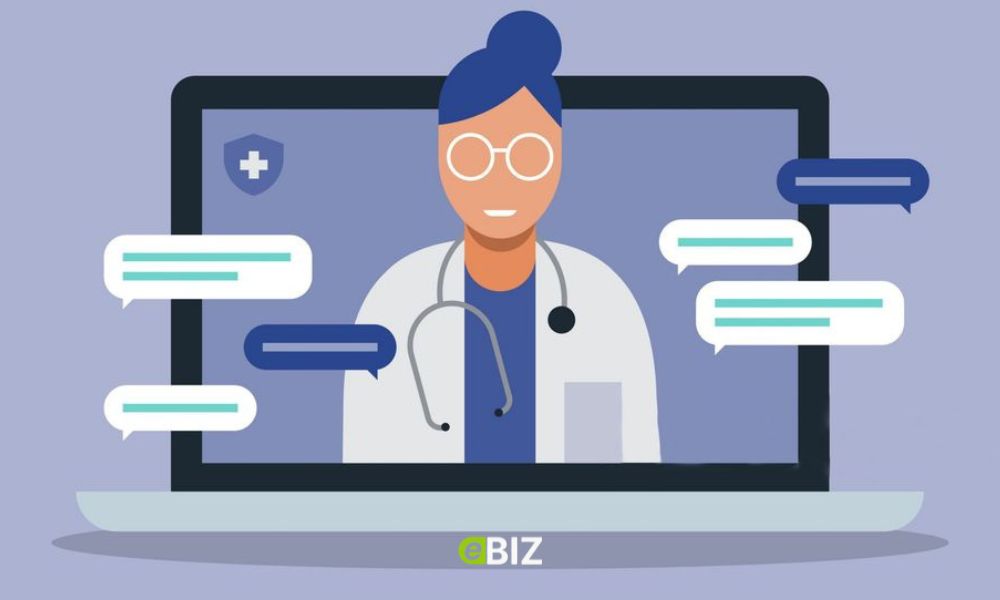
What is Medical Practice Telemedicine software?
Clinical practice management software
Medical practice telemedicine software is a digital platform that allows healthcare providers to book home doctor online and deliver remote medical care to patients.
It enables doctors, nurses, and other healthcare professionals to consult with patients, and to book medical appointment online, diagnose illnesses, prescribe medications, and provide other medical services through video conferencing, text messaging, and other digital communication channels.

Become a virtual veterinarian: Telemedicine software can be integrated with electronic health records (EHRs) and other medical software to provide a seamless and efficient patient experience. It can also be used to book online appointment doctor, to track patient progress, manage appointments, and generate reports.
Virtual veterinary services via Telemedicine software offers a number of benefits for both patients and healthcare providers. For patients, it provides an book online appointment gp, that’s convenient and provides affordable access to medical care, reduces the need for in-person visits, and can improve continuity of care.
For healthcare providers, it allows them to reach a wider patient population, and for them to book online consultation, that increase efficiency, and reduce costs.
What are the different types of telemedicine platforms?
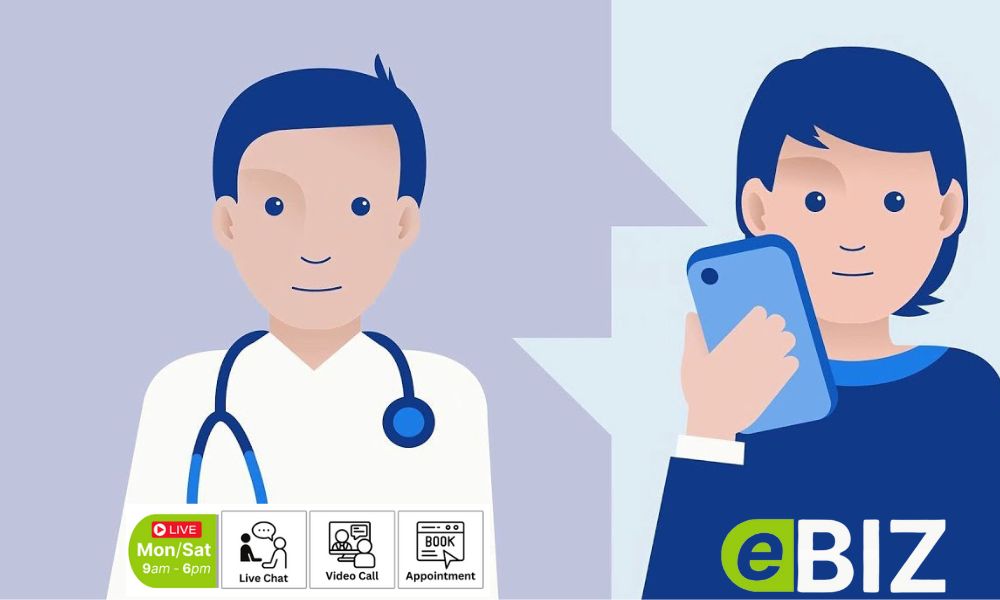
Telemedicine platforms come in a variety of shapes and sizes, each with its own unique set of features and benefits. Here are some of the most common types of telemedicine platforms:
Video conferencing platforms allow patients to book online consultation with doctor and these platforms empower patients and virtual medical professionals to communicate with each other in real-time via video or live video chat.
For example: A dermatologist online consultation or dentist online consultation, allows the patient to get instant care live onscreen. This type of platform is ideal for Video consultations, follow-up appointments, and other types of patient interactions that require face-to-face communication and to book telehealth online.
Remote patient monitoring platforms:** These platforms allow providers to monitor patients’ health data remotely.
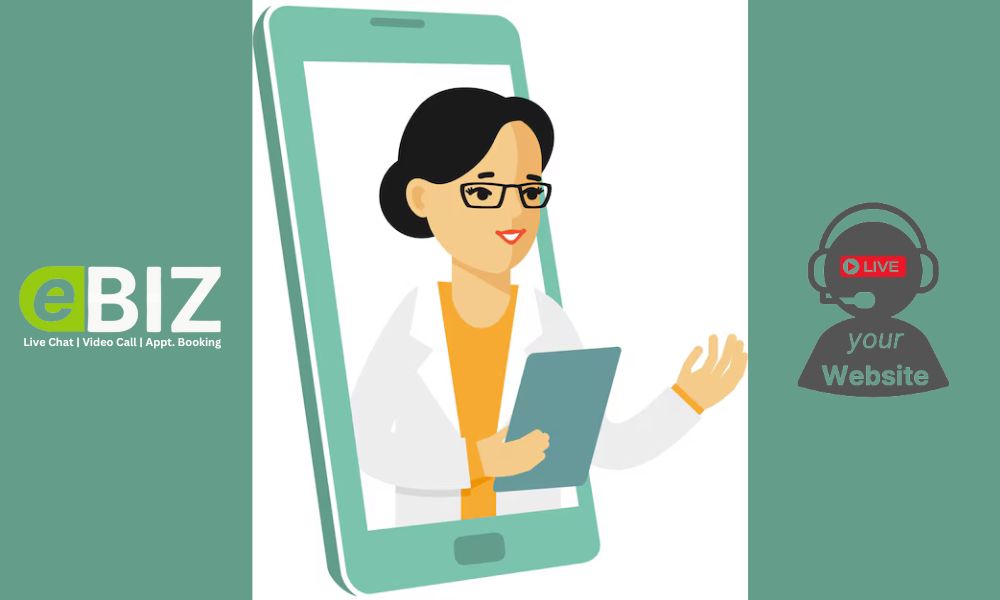
Become a virtual web doctor: This data can include vital signs, blood glucose levels, and other health metrics. Remote patient monitoring platforms can help providers to identify potential health problems early on and intervene before they become more serious.
E-prescribing platforms:** allow patients to book book a telemedicine appointment, and providers can easily prescribe medications electronically live on screen, eSign and share docs. This can save time and improve patient safety by reducing the risk of errors.
Patient portals:** These platforms provide patients with access to their own health information. Patients can use patient portals to view their medical records, schedule appointments, and communicate with their providers. (eBiz does not provide patient portals)
eBiz Medical Practice Software
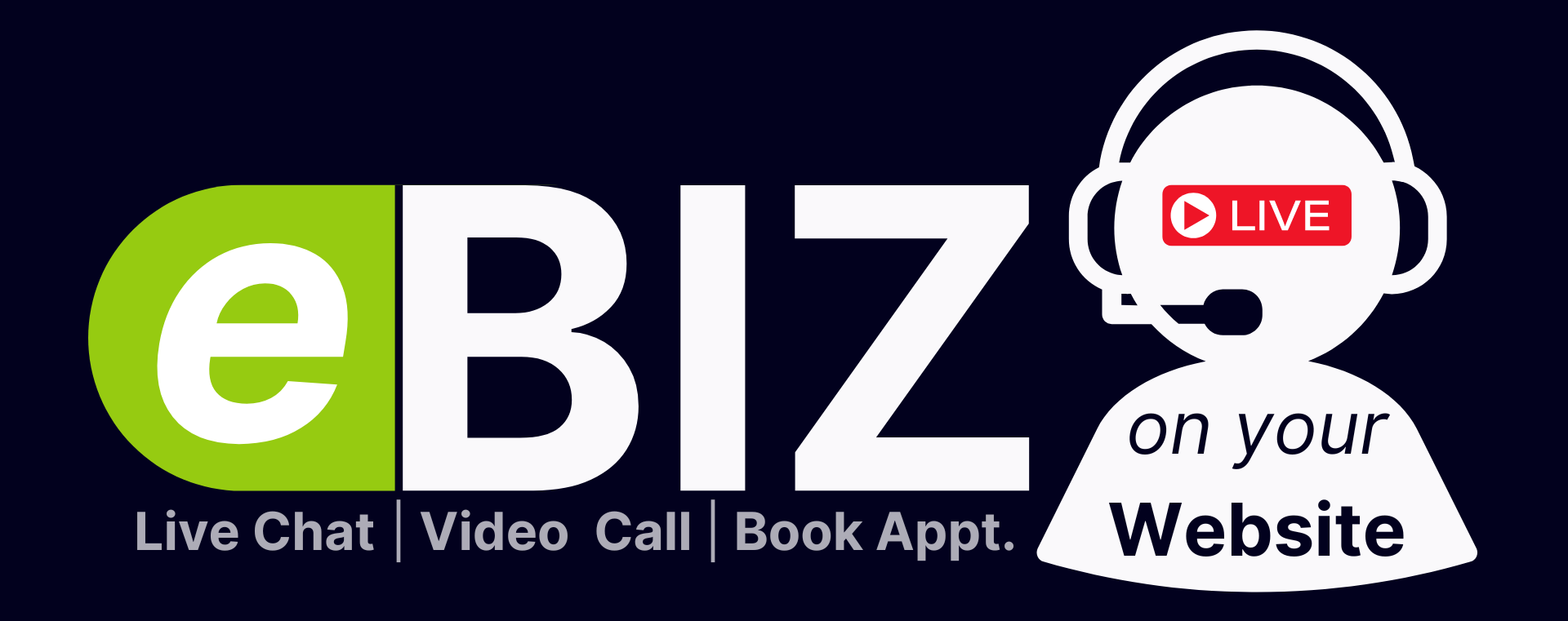
Our video consultation software is purpose built for Vets, Doctors (GP), cosmetic surgeons, phycologists, clinical therapists, physiotherapists, Dentists, non surgical Botox specialists, Wellness counselling and psychotherapy counsellors.
Patients can easily consult a vet online or book a cat vet online, the eBiz platform is the perfect lead magnet for small to medium pet practices, who want video consultation the simple & easy way.
Medical practice software maximizes your online revenues in-between appointments, instead of overwhelming the surgery or treatment room, with frustrated patients waiting to be seen.
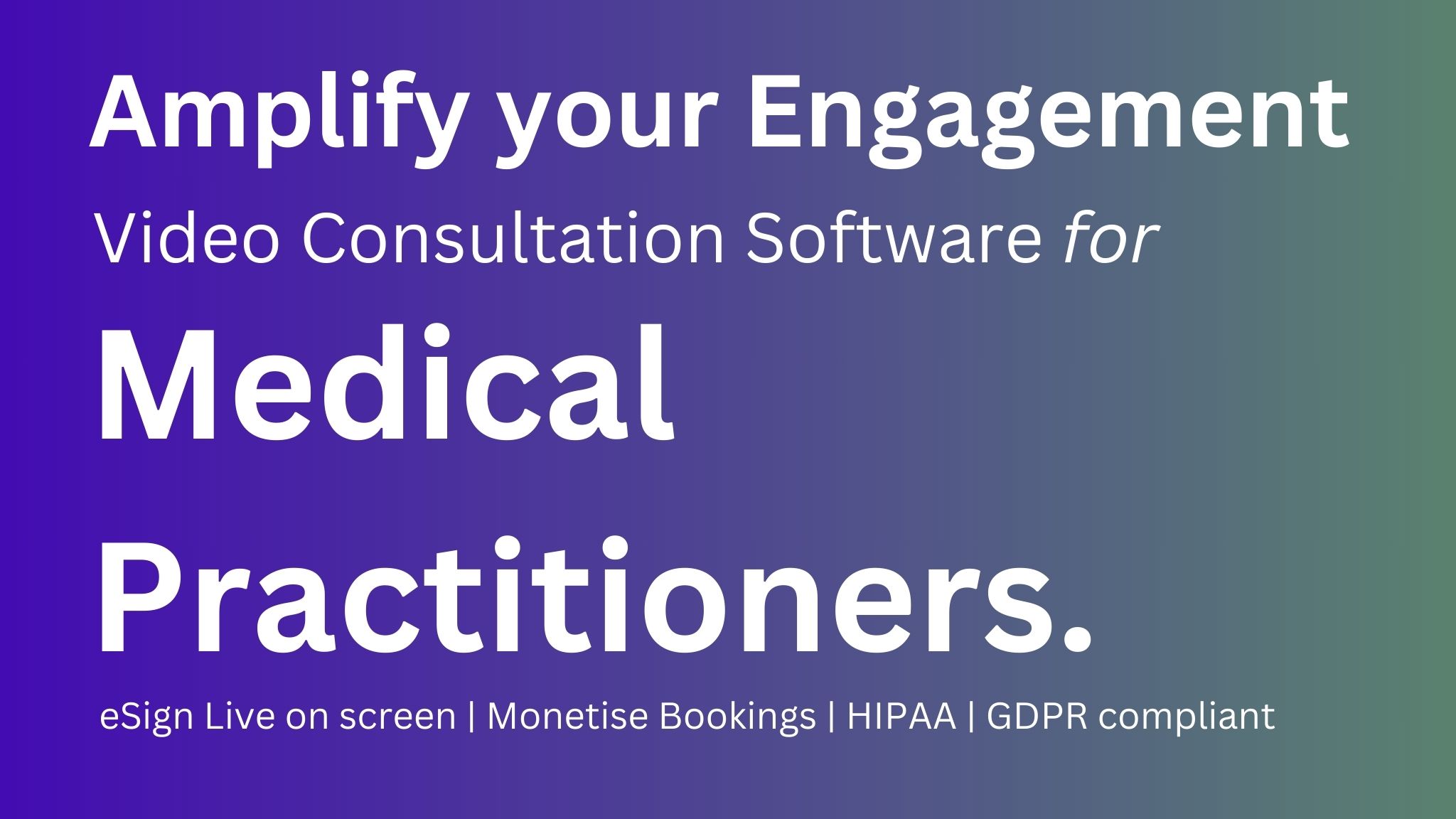
Run your operation virtually by providing a virtual visit with a doctor from your website, provide live video consultancy services to your patients or clients, Simply by adding eBiz to your website.
Our SSL encrypted platform is HIPAA |GDPR | SOC2 compliant, which is critical for healthcare professionals to operate legally and safely globally.

video consultations telemedicine bridges the gap for customers who can’t physically visit your medical practice, studio, clinic or salon.
Create new revenue streams with live video commerce and provide online customers the option of booking your consultancy services virtually.
Monetise your appointments and charge a prepaid fee, or offer complimentary bookings and up-sell your consultancy services with live video.
Create a FREE 15 min consultation on the eBiz calendar which becomes a hot lead magnet to upsell your services. Set up your availability or free or monetised timeslots. Simple & Easy!

Turn lost visitors into revenue, and convert the interest of unknown people browsing your website into direct sales opportunities; eBiz live e-customer software reduces your bounce rate.
Our 1 on 1 video consultation software is the perfect D2C video commerce tool that unlocks the power of medical practice virtual Services. eBiz provides Simple & Easy to use, video consultancy services for your clients.
How do I choose the right telemedicine platform for my needs?

There are many different telemedicine and teletherapy platforms available, so it’s important to do your research and choose one that’s right for your needs.
Consider your needs
Think about what features are important to you, such as video conferencing, scheduling, and patient management.
Do your research
Read reviews, compare pricing, and talk to other healthcare providers to get their recommendations.
Make a decision
Once you’ve considered your needs and done your research, you can make an informed decision about which telemedicine platform is right for you.
How does telemedicine enhance patient convenience?

Telemedicine offers several key conveniences for patients, including:
Eliminates travel time and expenses: Telemedicine appointments can be conducted from the comfort of the patient’s home or any other convenient location, saving them time and money spent on travel. (clinic management app or web browser solutions that work with any device)
Flexible scheduling: Telemedicine appointments can be scheduled at times that are convenient for patients, even outside of regular clinic hours.
Increased access to care: Telemedicine eliminates geographical barriers, allowing patients to access specialists or healthcare providers who may not be available in their immediate area.
Reduced wait times: Telemedicine appointments often have shorter wait times than in-person appointments, as patients do not need to physically wait in a waiting room.
Improved communication: Book telemedicine appointment platforms often include secure messaging and video conferencing capabilities, Calendar availibility scheduling, which allow for effective communication between patients and providers.
Future Trends in Telemedicine Solutions

Chat to a doctor online: Telemedicine, the delivery of healthcare services remotely using telecommunication technologies, has emerged as a valuable tool in providing accessible and convenient healthcare.
Key Trends in Telemedicine Solutions
- Integration with Electronic Health Records (EHRs): Seamless integration between telemedicine platforms and EHRs enhances patient data accessibility, streamlining care coordination and improving patient outcomes.
- Artificial Intelligence (AI) and Machine Learning (ML): AI and ML algorithms analyze vast amounts of patient data to identify patterns, predict health risks, and provide personalized care recommendations, enhancing diagnostic accuracy and treatment planning.
- Remote Patient Monitoring (RPM): RPM devices enable continuous monitoring of vital signs and health data, allowing healthcare providers to proactively detect and manage chronic conditions remotely, improving patient safety and reducing healthcare costs.
- Virtual Reality (VR) and Augmented Reality (AR): VR and AR technologies provide immersive and interactive experiences, enhancing patient engagement, surgical training, and rehabilitation processes.
- Blockchain Technology: Blockchain’s secure and immutable nature ensures data privacy and integrity, fostering trust and improving the reliability of telemedicine services.
These emerging trends are revolutionizing telemedicine solutions, expanding access to healthcare, improving patient outcomes, and driving innovation in the healthcare industry.
How Telemedicine Solutions Improve Patient Satisfaction

Telemedicine eliminates the need for patients to travel to a doctor’s office or clinic. This is especially beneficial for patients who live in rural areas or have mobility issues.
Telemedicine also offers more flexible hours, making it easier for patients to schedule appointments that fit their busy schedules.
Reduced Costs
Telemedicine can save patients money on transportation costs, parking fees, and time off from work.
In some cases, telemedicine can also lead to lower overall healthcare costs by reducing the need for hospitalizations and emergency room visits.
Improved Communication
Telemedicine platforms offer a variety of ways for patients to communicate with their healthcare providers, including video conferencing, messaging, and file sharing.
This improved communication can lead to better patient care and more satisfied patients. Learn More
Telemedicine is transforming the way we receive healthcare.

Telemedicine: The Future of Healthcare
Telemedicine is transforming the way we receive healthcare. It offers convenient, accessible, and affordable care to patients, while also improving efficiency and outcomes for healthcare providers.
Benefits of Telemedicine: Convenience
Telemedicine allows patients to receive care from the comfort of their own homes, eliminating the need for travel and long wait times.
Accessibility
Telemedicine makes healthcare more accessible to people in rural or underserved areas, who may have limited access to traditional medical facilities.
Affordability
Telemedicine can be more affordable than traditional in-person visits, as it eliminates the costs associated with travel and time off work.
Improved Efficiency
Telemedicine improves efficiency for healthcare providers by reducing the time spent on administrative tasks and allowing them to see more patients virtually.
Enhanced Outcomes
Telemedicine can enhance patient outcomes by providing timely access to care and enabling closer monitoring of chronic conditions.
Reduced Health Disparities
Telemedicine can help reduce health disparities by providing equitable access to care for underserved populations.
Telemedicine is revolutionizing healthcare, making it more convenient, accessible, affordable, efficient, and equitable. As technology continues to advance, telemedicine will likely play an increasingly important role in delivering high-quality healthcare to patients around the world.
Ethical Implications of the Future of Telemedicine

Telemedicine is a rapidly growing field that has the potential to revolutionize the way healthcare is delivered. However, there are also some ethical implications that need to be considered as telemedicine continues to evolve.
Access to Care
One of the biggest ethical concerns about telemedicine is whether it will make it easier for people to access healthcare. On the one hand, telemedicine can make it easier for people who live in rural or underserved areas to get the care they need.
On the other hand, there is concern that telemedicine could lead to a decrease in the quality of care, as patients may not be able to get the same level of care from a remote provider as they would from a doctor they see in person.
Privacy and Confidentiality
Another ethical concern about telemedicine is the privacy and confidentiality of patient information.
Telemedicine involves the transmission of patient information over the internet, which raises concerns about the security of this information. There is also the potential for patient information to be used in ways that patients do not consent to.
Informed Consent
Informed consent is a key ethical principle in healthcare. Patients have the right to know the risks and benefits of any treatment or procedure before they agree to it.
In the case of telemedicine, it is important to ensure that patients are fully informed about the potential risks and benefits of telemedicine before they consent to it.
Conclusion
Telemedicine has the potential to revolutionize the way healthcare is delivered. However, there are also some ethical implications that need to be considered as telemedicine continues to evolve.
It is important to address these ethical concerns in order to ensure that telemedicine is used in a way that benefits patients and does not harm them.
How do I find a telemedicine provider?

Check with your health insurance provider. Many insurance companies offer telemedicine services through their own networks.
Search online for “telemedicine providers” or “virtual doctor visits.” There are many websites and directories that list telemedicine providers by specialty, location, and insurance accepted.
Ask your primary care physician for a referral. Your doctor may be able to recommend a telemedicine provider who is qualified to treat your condition.
Use a telemedicine app. There are many apps available that allow you to connect with a doctor or nurse via video or chat, such as Teladoc, Amwell, and Doctor on Demand.
Once you have found a telemedicine provider, you can schedule an appointment online or by phone.
Most telemedicine appointments take place via video or chat, so you will need to have a computer, tablet, or smartphone with a camera and microphone.
Conclusion: The Growing Role of Telemedicine
Best Practices for Using Telemedicine
Choose a reputable provider.
Make sure your internet connection is stable.
Find a private and quiet place to have your appointment.
Be prepared to provide your medical history and current symptoms.
Follow the doctor’s instructions carefully.
Don’t hesitate to ask questions if you don’t understand something.
Follow up with your doctor as directed.

